More than half of mobile visitors will leave if your website takes longer than three seconds to load. Therefore, it’s essential to ensure that your WordPress site displays quickly, to avoid losing out on valuable traffic and revenue. Yet it can be challenging to identify specific performance issues.
Fortunately, you can easily audit and fix your page speed issues in WordPress with the help of some free tools. Solutions such as PageSpeed Insights, GTmetrix, and WordPress Speed Tool can identify performance problems and help you solve them.
This article will look at the importance of loading times for Search Engine Optimization (SEO) and conversions. We’ll also discuss how to perform a WordPress performance audit with three free tools. Finally, we’ll outline a few tips for making your website load faster. Let’s get started!
Why Site Speed Is Important
The faster your pages load, the better your site’s user experience should be. Visitors will be able to interact with all of the elements on a page, without waiting for them to load. Therefore, they’ll be more likely to stay on your site and return in the future.
Furthermore, Google considers site speed when ranking websites in its Search Engine Results Pages (SERPs). As of July 2018, site speed is a ranking factor for both mobile and desktop search results. It’s also an important metric for your Core Web Vitals scores. If you can reduce your loading times, you stand a better chance of appearing in relevant searches.
If you offer products or services on your site, loading times can also affect your conversions and revenue. Just three seconds of waiting can leave online customers dissatisfied with your eCommerce store.
For these reasons, you’ll want your site running as quickly as possible. Fortunately, a WordPress performance audit can identify any issues that are slowing down your website.
How to Perform a WordPress Performance Audit (3 Free Tools)
Various tools can help you perform a WordPress performance audit. Let’s have a look at three free options!
1. PageSpeed Insights
PageSpeed Insights is a tool developed by Google that enables you to test your website’s performance. It also provides recommendations on how to improve it. This tool’s recommendations are specific to Google’s ranking factors, making it helpful if you want to boost your position in the SERPs:
To use the tool, simply enter your website’s URL and click on the Analyze button. You’ll then receive a detailed report:
Your site will receive a score out of 100 for mobile and desktop devices. You’ll also see scores for individual Core Web Vitals.
You can view opportunities and diagnostics that reveal specific performance issues with your website. These come with recommendations for how to boost your scores. At the bottom of the page, you’ll also see which performance metrics have “passed” the audit.
Overall, PageSpeed Insights can be valuable because of its specific and personalized recommendations. It’s also ideal if you focus your SEO efforts on Google.
2. GTmetrix
GTmetrix is another tool that can test your website’s speed and performance. It provides detailed graphs and numerical data to help you understand your scores. You can even see performance metrics across different device types, and view data for specified date ranges.
Furthermore, GTmetrix can show results from several different locations worldwide. As such, it can be an excellent WordPress performance audit tool if you have an international audience.
GTmetrix works similarly to Page Speed Insights. You’ll need to enter your website’s URL and click on the Analyze button:
The results page will give you a score out of 100 for your site’s performance and structure. It also identifies your Core Web Vitals scores at the top of the page:
Further down the page, you will see a list of issues affecting your page speed, along with their severity. GTmetrix will provide specific recommendations for fixing these problems, ranking which ones have the most impact on your site.
You can even compare your website to another by typing the second site’s URL into the Compare box. There, you’ll see how your website stacks up against the competition, enabling you to stay ahead of the curve.
3. WordPress Speed Tool
Finally, you might consider using the WordPress Speed Tool from the WP Engine team. Its free WordPress performance audit includes a detailed report with your website’s loading times, overall page sizes, number of requests, and ‘cacheability’.
WordPress Speed Tool could be a strong option if you want expert advice from a team that’s very familiar with WordPress. WP Engine is a leader in the managed WordPress hosting field, focusing on web performance.
To use the tool, simply enter your website’s URL and your email address, and then click on Test My Site:
The tool will audit your website and email you a personalized report. It will also include specific performance recommendations to help you improve your site on mobile and desktop devices.
3 Simple Fixes to Improve Your Site’s Speed
Whatever solution you use, your WordPress performance audit will provide specific recommendations for your site. Additionally, here are some simple fixes that can improve the speed of just about any website.
1. Optimize Your Images
Images take up a lot of space, particularly if they are large and detailed. Their significant file sizes can slow down your website and negatively impact your Core Web Vitals.
However, photos are also necessary for creating engaging content. They can break up walls of text, provide visual information, and appeal to visitors.
Fortunately, it’s easy to optimize your photos. By compressing image files, choosing the correct file formats, and enabling lazy loading, you can use graphics without harming your site’s speed.
We recommend using an image optimization plugin such as Smush:
This free plugin can automatically resize and compress your images to reduce file sizes. It can also enable lazy loading on your site, so your pages won’t load graphics until visitors reach them.
2. Enable Caching
Caching stores static files of your website. When someone visits your site, they’ll be served these saved files rather than waiting for their browser to request everything from scratch. Therefore, caching can significantly speed up your website’s loading times.
It’s also easy to enable caching on your website. Plugins such as WP Super Cache can streamline the process right from your WordPress dashboard:
This plugin uses three different caching methods to deliver personalized files to visitors based on their past activities and behaviors. For example, users who have commented on your website will also receive cached comment files.
Furthermore, WP Super Cache is free to use, and makes it easy to clear cached files from your storage. Overall, it can be a quick and easy solution to WordPress performance issues.
3. Consider Using Managed Hosting
Finally, we recommend partnering with a managed hosting provider to boost your website’s performance. In this setup, the host will typically take care of various optimization and maintenance tasks for you, including:
- Automatic backups and updates
- Malware scanning and WordPress security
- Caching and access to a Content Delivery Network (CDN)
- Access to multiple data centers
- Database optimization
A managed hosting provider handles all of these tasks (and more) behind the scenes, so you can focus on growing your site without worrying about its performance. A quality host will also come with dedicated customer support to assist you with any issues.
If you’re in the market for a managed host, we recommend checking out WP Engine. This provider focuses on WordPress websites of all kinds, including eCommerce and business sites:
WP Engine’s managed hosting plans start at $25 per month for one site. This package provides 10 GB of storage, 50 GB of bandwidth, and support for 25,000 monthly visitors.
Conclusion
A slow website can cost you repeat visitors and revenue. Fortunately, a WordPress performance audit can quickly identify issues with your site and help you solve them.
To recap, here are the three free tools you can use for your performance audit:
- PageSpeed Insights: It provides Google-specific recommendations to help you improve your Core Web Vitals scores and site loading times.
- GTmetrix: This tool offers an in-depth visual report of your site’s performance across different locations, devices, and date ranges.
- WordPress Speed Tool: It can test both web and mobile versions of your website, and email you personalized recommendations about how to improve your scores.
Do you have any questions about running a WordPress performance audit? Share your thoughts with us in the comments section below!

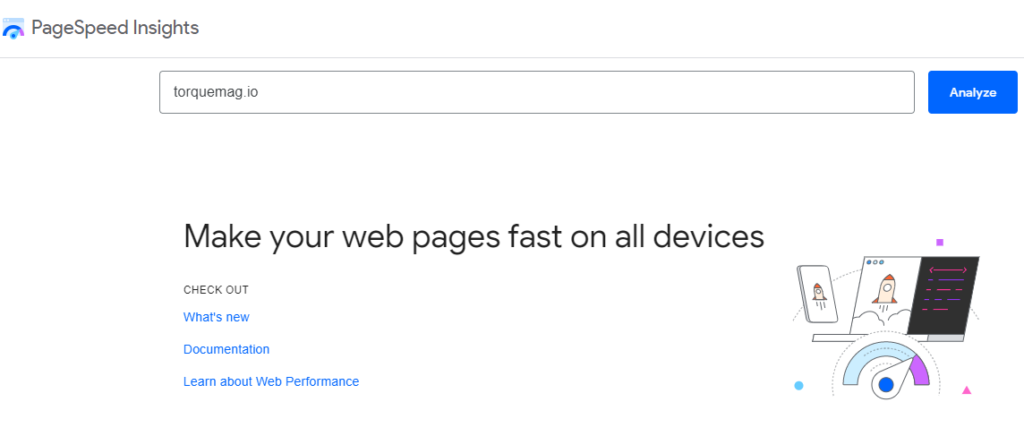
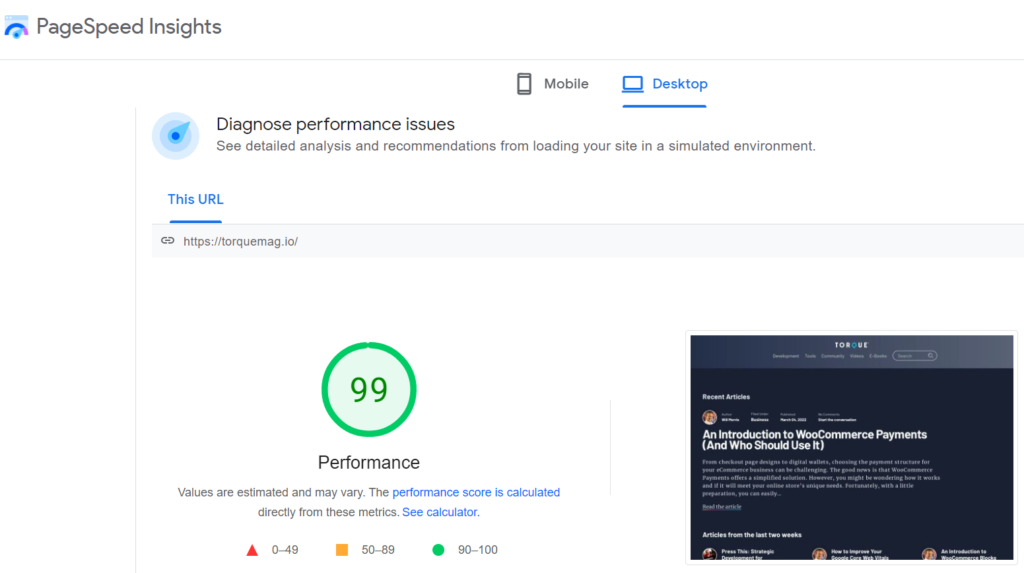
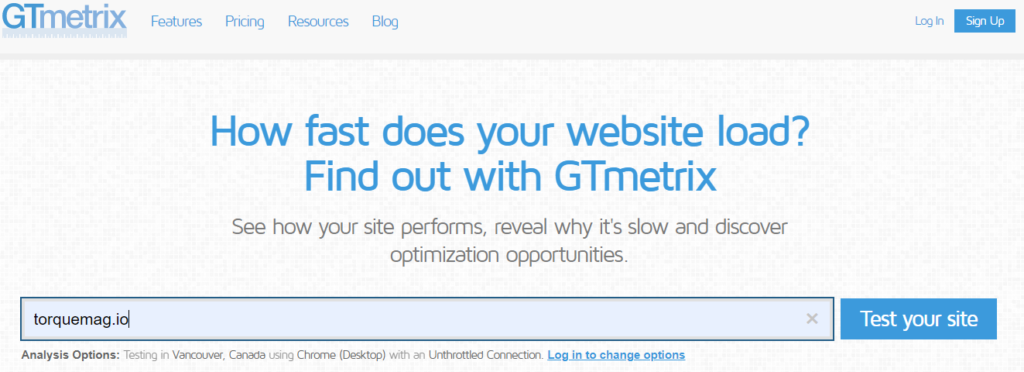
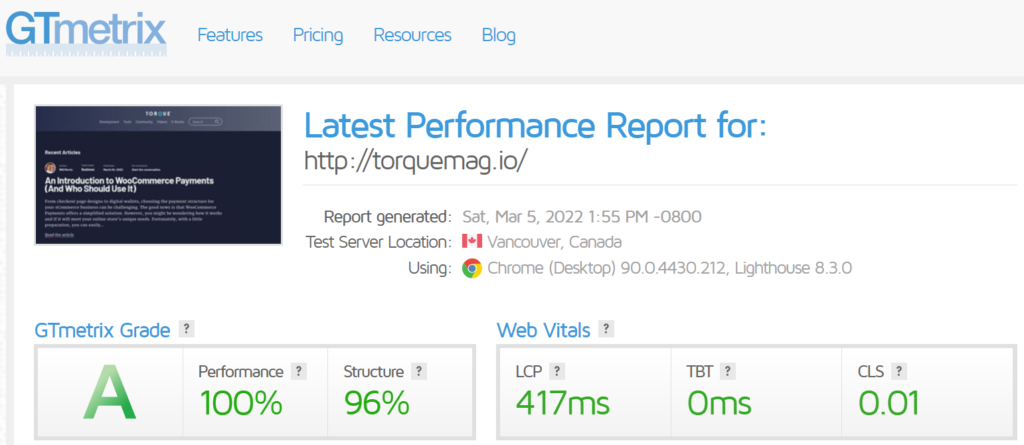
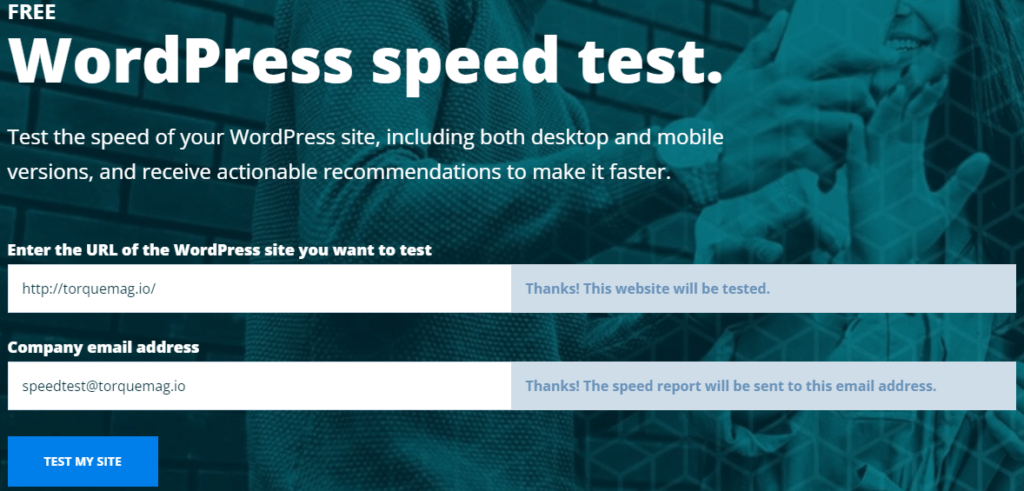


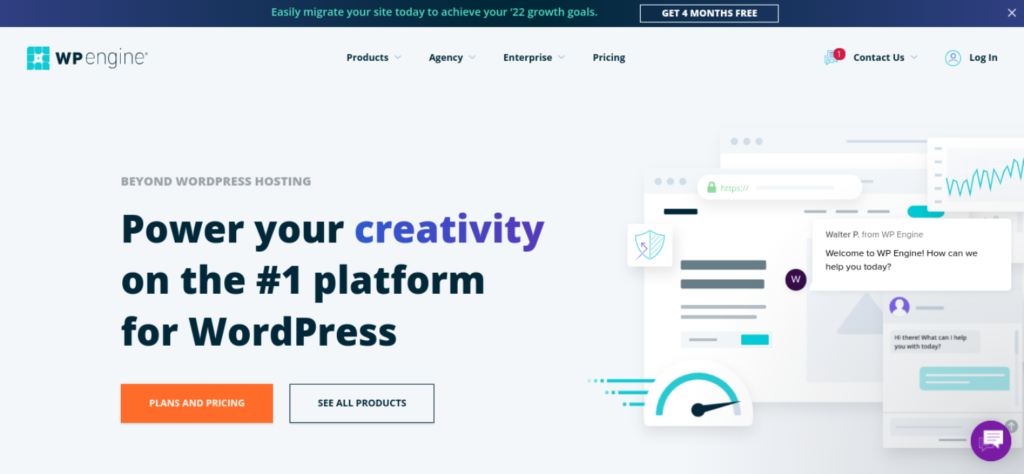
1 Comment